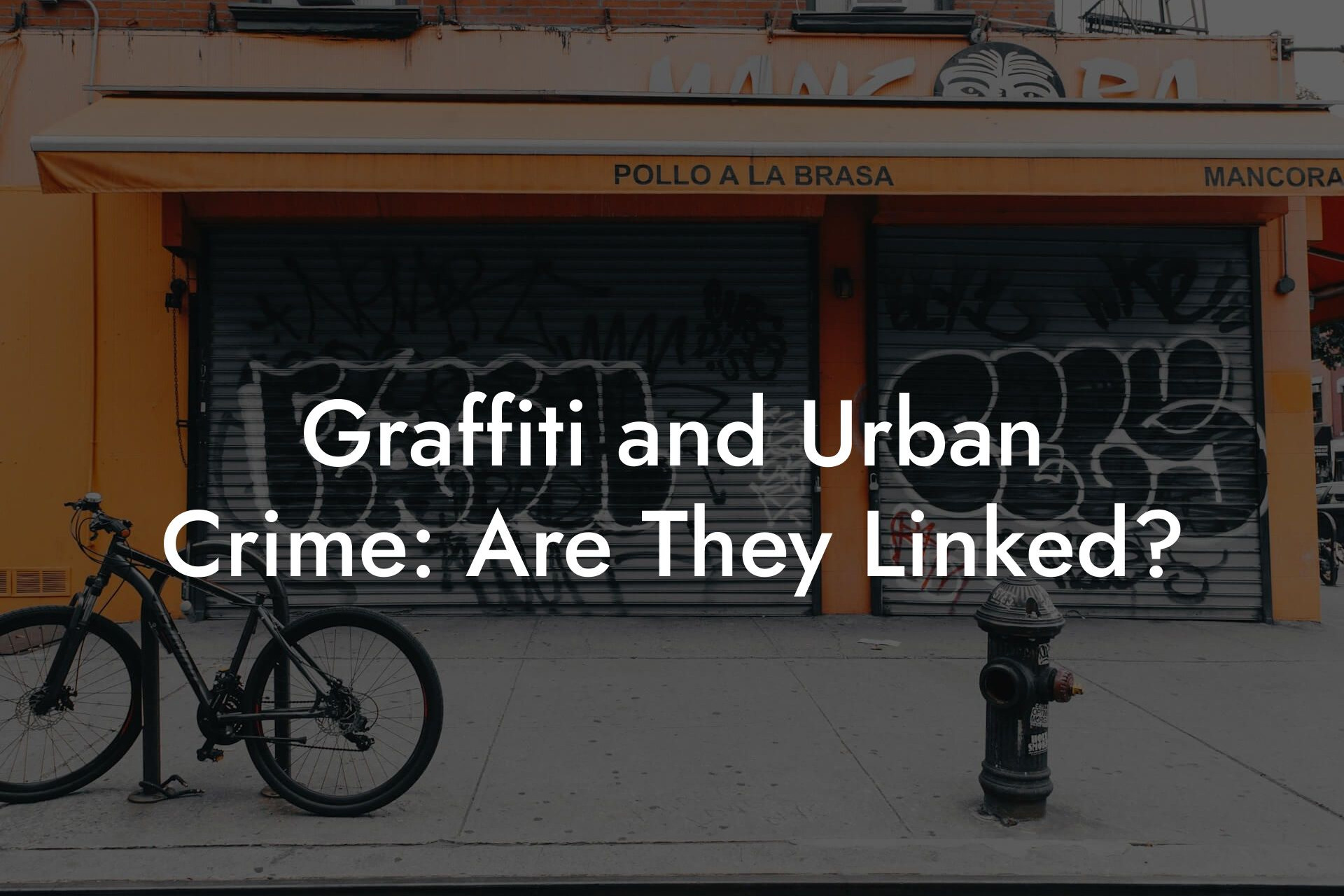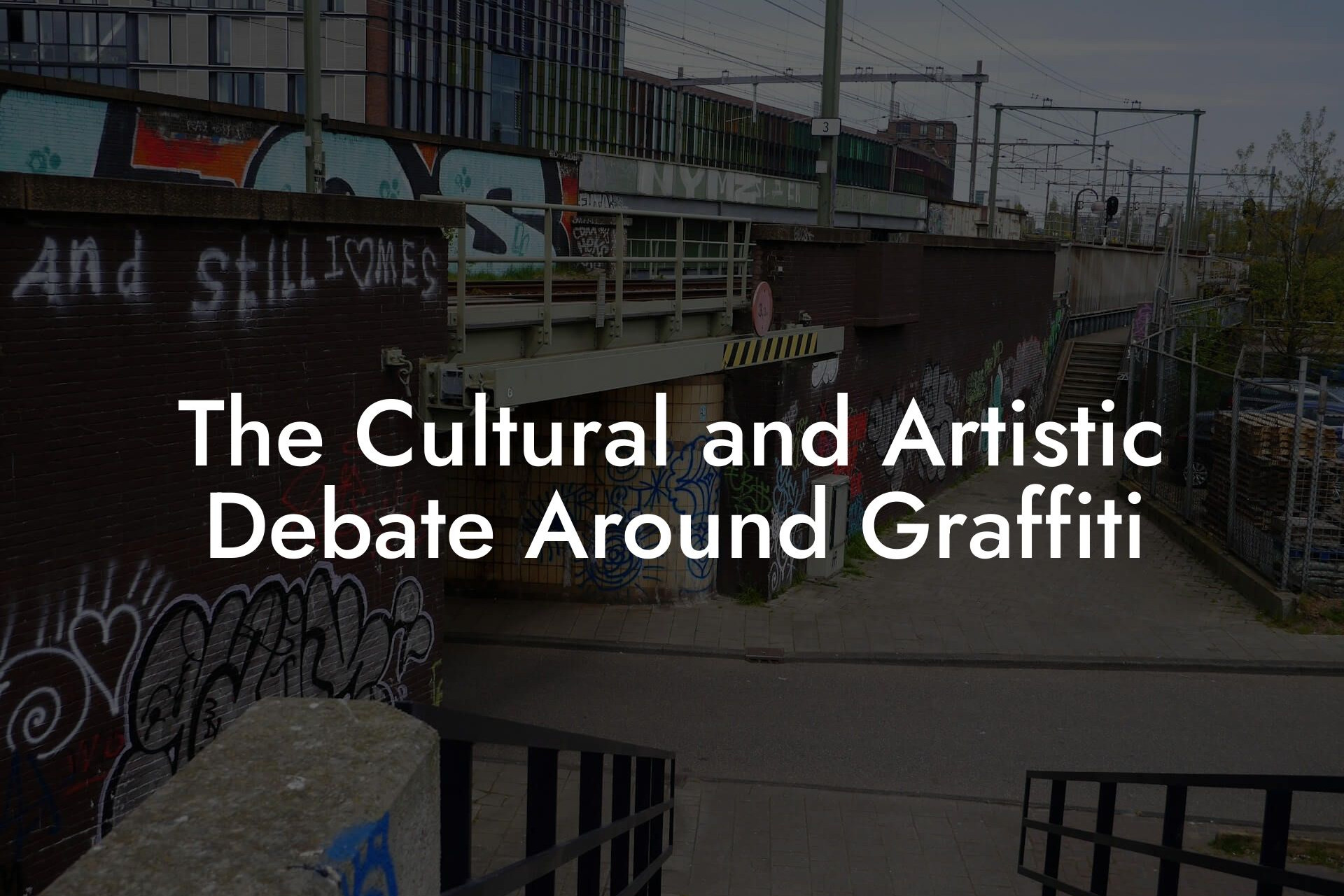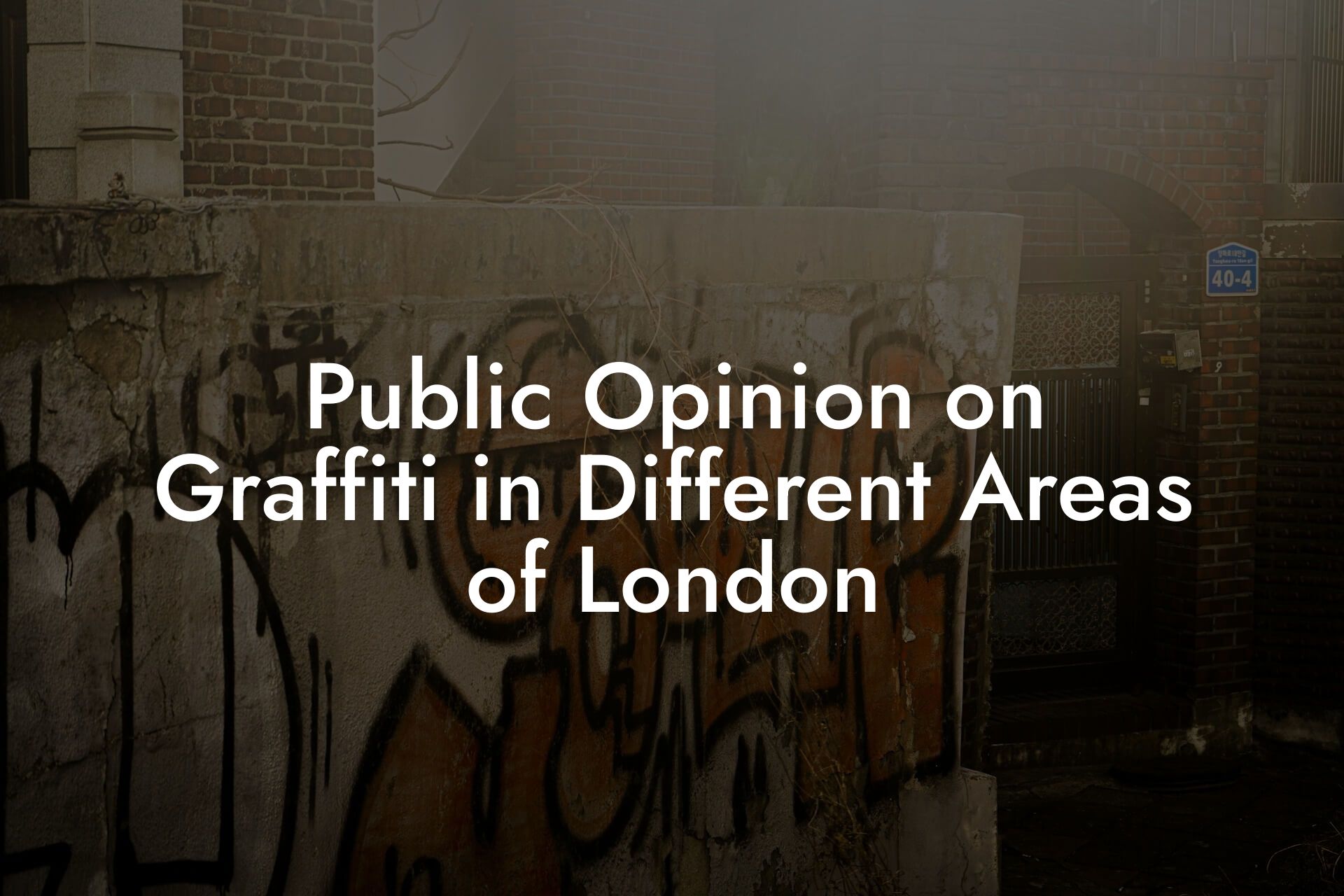Graffiti is a widespread problem that affects communities worldwide, causing significant emotional distress and financial burdens. While often viewed as a minor offense, graffiti can have a profound psychological impact on individuals, businesses, and communities. As a leading graffiti removal company in London, we have seen firsthand the devastating effects of graffiti on community morale and well-being. In this article, we will delve into the psychological impact of graffiti on communities, exploring the reasons behind its persistence, its effects on mental health, and the importance of effective removal and prevention strategies.
Table of Contents
- The Roots of Graffiti: Understanding the Motivations Behind Vandalism
- The Emotional Toll of Graffiti on Communities
- The Impact on Mental Health
- The Economic Consequences of Graffiti
- The Importance of Effective Removal and Prevention Strategies
- The Role of Graffiti Removal Companies
- Get in Touch with Graffiti Removal London
- Frequently Asked Questions
The Roots of Graffiti: Understanding the Motivations Behind Vandalism
Before we can discuss the psychological impact of graffiti, it's essential to understand the motivations behind this form of vandalism. Graffiti can be a complex issue, driven by a range of factors, including:
• Rebellion and defiance: For some, graffiti is a way to challenge authority, push boundaries, and assert independence.
• Self-expression and creativity: Graffiti can be a means of artistic expression, allowing individuals to convey emotions, ideas, and messages.
• Peer pressure and gang affiliation: In some cases, graffiti is used as a form of initiation or to mark territory, often linked to gang activity.
• Boredom and lack of opportunities: In areas with limited recreational facilities or opportunities, graffiti may be seen as a way to alleviate boredom and create excitement.
The Emotional Toll of Graffiti on Communities
Graffiti can have a profound emotional impact on communities, leading to feelings of:
• Fear and anxiety: The presence of graffiti can create a sense of unease, making residents feel unsafe and vulnerable.
• Anger and frustration: The senseless destruction of property can evoke strong emotions, leading to feelings of anger and frustration.
• Helplessness and despair: When graffiti is left unchecked, it can create a sense of hopelessness, as if the community is powerless to stop it.
• Shame and embarrassment: Graffiti can be a source of shame for communities, particularly if it is seen as a reflection of their values or character.
The Impact on Mental Health
The psychological impact of graffiti can extend beyond emotions, affecting mental health and well-being. Research has shown that exposure to graffiti can:
• Increase stress levels: The constant presence of graffiti can contribute to increased stress levels, leading to anxiety and depression.
• Erode trust: The failure of authorities to address graffiti can erode trust in institutions, leading to feelings of disillusionment and powerlessness.
• Affect self-esteem: The negative impact of graffiti on community pride and self-esteem can have long-term effects on mental health.
The Economic Consequences of Graffiti
In addition to the emotional and psychological toll, graffiti can have significant economic consequences for communities. These include:
• Property devaluation: The presence of graffiti can lower property values, making it harder to sell or rent properties.
• Lost revenue: Businesses may lose revenue due to the negative impact of graffiti on customer perception and foot traffic.
• Cleanup costs: The cost of removing graffiti can be substantial, placing a significant burden on local authorities and businesses.
The Importance of Effective Removal and Prevention Strategies
Given the significant psychological impact of graffiti on communities, it is essential to develop effective removal and prevention strategies. These include:
• Rapid removal: Quickly removing graffiti can help to prevent further vandalism and reduce the emotional impact on communities.
• Community engagement: Involving local residents in graffiti removal and prevention efforts can help to build trust and foster a sense of community ownership.
• Alternative forms of expression: Providing alternative forms of expression, such as legal graffiti walls or art programs, can help to redirect creative energy away from vandalism.
• Collaboration with authorities: Working closely with local authorities, schools, and community groups can help to identify and address the root causes of graffiti.
The Role of Graffiti Removal Companies
As a graffiti removal company, we recognize the critical role we play in mitigating the psychological impact of graffiti on communities. Our services are designed to:
• Provide rapid and effective removal: Our team of experts uses specialized equipment and techniques to quickly and safely remove graffiti.
• Support community engagement: We work closely with local authorities and community groups to develop effective prevention strategies and promote community engagement.
• Offer expert advice: Our team provides guidance on graffiti prevention, removal, and mitigation, helping communities to develop effective strategies for addressing this issue.
The psychological impact of graffiti on communities cannot be overstated. It is a complex issue that requires a comprehensive approach, addressing the root causes of vandalism, supporting community engagement, and providing effective removal and prevention strategies. By working together, we can reduce the emotional toll of graffiti, promote community pride, and create safer, more welcoming environments for everyone.
Get in Touch with Graffiti Removal London
If you're struggling with graffiti in your community, get in touch with us today. Our team of experts is dedicated to providing rapid, effective, and compassionate graffiti removal services, helping to mitigate the psychological impact of graffiti on communities. Contact us to learn more about our services and how we can support your community.
Frequently Asked Questions
What is the psychological impact of graffiti on communities?
Graffiti can have a profound psychological impact on communities, leading to feelings of anxiety, fear, and disinvestment. It can create a perception of neglect and disorder, making residents and business owners feel that their area is not being taken care of. This can lead to a decline in community pride and a sense of ownership.
How does graffiti affect property values?
Graffiti can significantly decrease property values, as it creates an impression of neglect and lack of maintenance. This can lead to a decrease in property prices, making it harder for homeowners and businesses to sell their properties. Additionally, graffiti can also deter potential buyers and investors, leading to a decline in economic growth.
What are the consequences of ignoring graffiti?
Ignoring graffiti can lead to a range of negative consequences, including an increase in crime, vandalism, and anti-social behavior. It can also create a sense of impunity among vandals, encouraging them to continue their illegal activities. Furthermore, ignoring graffiti can lead to a decline in community morale and a sense of disinvestment.
How does graffiti affect mental health?
Graffiti can have a negative impact on mental health, particularly for those who live or work in areas where it is prevalent. The constant exposure to graffiti can lead to feelings of anxiety, stress, and depression. It can also create a sense of powerlessness and hopelessness, particularly among young people and vulnerable adults.
What is the impact of graffiti on local businesses?
Graffiti can have a devastating impact on local businesses, leading to a decline in customer numbers, revenue, and reputation. It can also create a perception that the area is not safe or welcoming, deterring potential customers and investors. Furthermore, graffiti can lead to increased costs for businesses, as they may need to spend money on cleaning and repairing damaged property.
How does graffiti affect community cohesion?
Graffiti can have a negative impact on community cohesion, creating divisions and tensions between different groups. It can also lead to a sense of mistrust and suspicion, particularly between residents and local authorities. Furthermore, graffiti can create a perception that certain groups are not being listened to or valued, leading to feelings of marginalization and exclusion.
What is the role of local authorities in addressing graffiti?
Local authorities have a critical role to play in addressing graffiti, including providing resources and support for clean-up initiatives, implementing anti-graffiti policies, and working with local communities to develop solutions. They can also provide education and awareness programs to deter young people from engaging in graffiti vandalism.
How can communities work together to address graffiti?
Communities can work together to address graffiti by organizing clean-up initiatives, developing anti-graffiti policies, and working with local authorities to develop solutions. They can also provide education and awareness programs to deter young people from engaging in graffiti vandalism. Furthermore, communities can work together to create a sense of ownership and pride, encouraging residents to take action against graffiti.
What are the benefits of rapid graffiti removal?
Rapid graffiti removal can have a range of benefits, including reducing the psychological impact of graffiti, deterring vandals, and improving community morale. It can also help to prevent the spread of graffiti, reducing the risk of further vandalism and anti-social behavior.
How can businesses protect themselves against graffiti?
Businesses can protect themselves against graffiti by taking preventative measures, such as installing security cameras, improving lighting, and using anti-graffiti coatings. They can also work with local authorities and community groups to develop anti-graffiti initiatives and provide education and awareness programs to deter young people from engaging in graffiti vandalism.
What is the role of education in preventing graffiti?
Education plays a critical role in preventing graffiti, particularly among young people. Educational programs can help to raise awareness about the negative impacts of graffiti, provide alternative forms of expression, and encourage young people to take pride in their communities.
How can individuals report graffiti?
Individuals can report graffiti to their local authorities, who can provide information on how to report incidents and access clean-up resources. They can also report graffiti to local community groups, who may be able to provide support and resources for clean-up initiatives.
What is the cost of graffiti to the economy?
The cost of graffiti to the economy is significant, with estimates suggesting that it costs billions of pounds each year. This includes the cost of clean-up, repair, and replacement of damaged property, as well as the impact on property values and local businesses.
How does graffiti affect tourism?
Graffiti can have a negative impact on tourism, creating a perception that an area is not safe or welcoming. This can lead to a decline in visitor numbers, revenue, and reputation, having a significant impact on local economies.
What is the link between graffiti and crime?
There is a clear link between graffiti and crime, with graffiti often being a precursor to more serious criminal activity. Areas with high levels of graffiti are often more likely to experience other forms of crime, including vandalism, theft, and violence.
How can graffiti be prevented?
Graffiti can be prevented through a range of measures, including education and awareness programs, community engagement, and preventative measures such as security cameras and anti-graffiti coatings. It can also be prevented through rapid removal, which can help to deter vandals and reduce the spread of graffiti.
What is the role of community engagement in addressing graffiti?
Community engagement plays a critical role in addressing graffiti, including providing education and awareness programs, organizing clean-up initiatives, and working with local authorities to develop solutions. It can also help to create a sense of ownership and pride, encouraging residents to take action against graffiti.
How can local authorities work with community groups to address graffiti?
Local authorities can work with community groups to address graffiti by providing resources and support for clean-up initiatives, developing anti-graffiti policies, and working together to develop solutions. They can also provide education and awareness programs to deter young people from engaging in graffiti vandalism.
What is the impact of graffiti on residential areas?
Graffiti can have a significant impact on residential areas, creating a perception of neglect and disorder. It can also lead to a decline in property values, making it harder for homeowners to sell their properties. Furthermore, graffiti can create a sense of anxiety and fear among residents, particularly among vulnerable groups such as the elderly and young families.
How can graffiti be removed safely?
Graffiti can be removed safely through the use of specialized cleaning products and techniques. It is important to wear protective clothing and follow safety guidelines to avoid injury or damage to property. Additionally, it is recommended to hire a professional graffiti removal service, such as Graffiti Removal London, to ensure that the job is done safely and effectively.
What is the importance of rapid graffiti removal?
Rapid graffiti removal is important because it can help to reduce the psychological impact of graffiti, deter vandals, and improve community morale. It can also help to prevent the spread of graffiti, reducing the risk of further vandalism and anti-social behavior.
How can businesses work with Graffiti Removal London to address graffiti?
Businesses can work with Graffiti Removal London to address graffiti by contacting us to report incidents and accessing our cleaning and removal services. We can provide rapid and effective removal of graffiti, helping to restore property and improve community morale.
Toby Doherty
Toby Doherty is a seasoned graffiti removal expert with over 20 years of experience in the industry. Throughout his career, Toby has helped countless businesses and property owners in London maintain clean, graffiti-free spaces. His extensive knowledge of graffiti removal techniques, from eco-friendly solutions to advanced technologies like laser cleaning, makes him a trusted authority in the field. Passionate about restoring urban environments, Toby combines his hands-on expertise with a commitment to staying up-to-date on the latest industry trends and innovations. When he’s not out in the field, Toby shares his insights through detailed articles, offering practical advice on everything from graffiti prevention to legal considerations.




